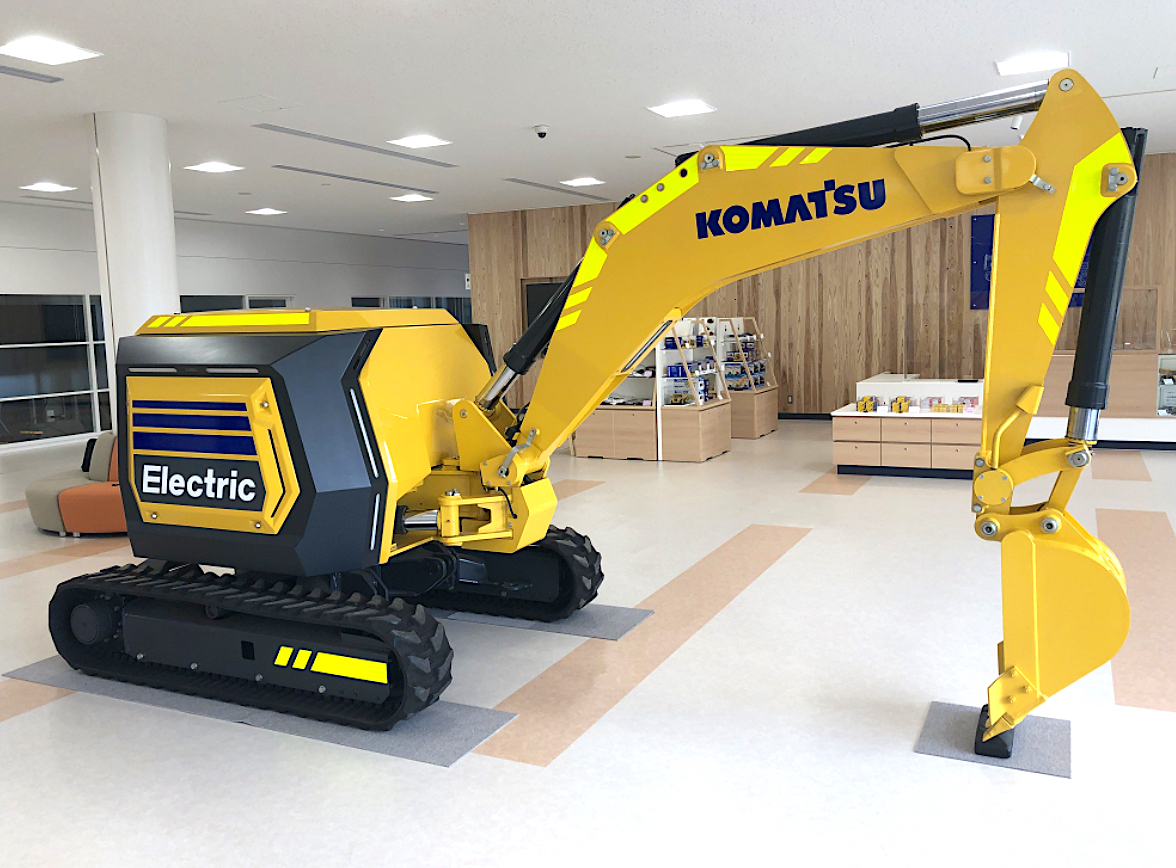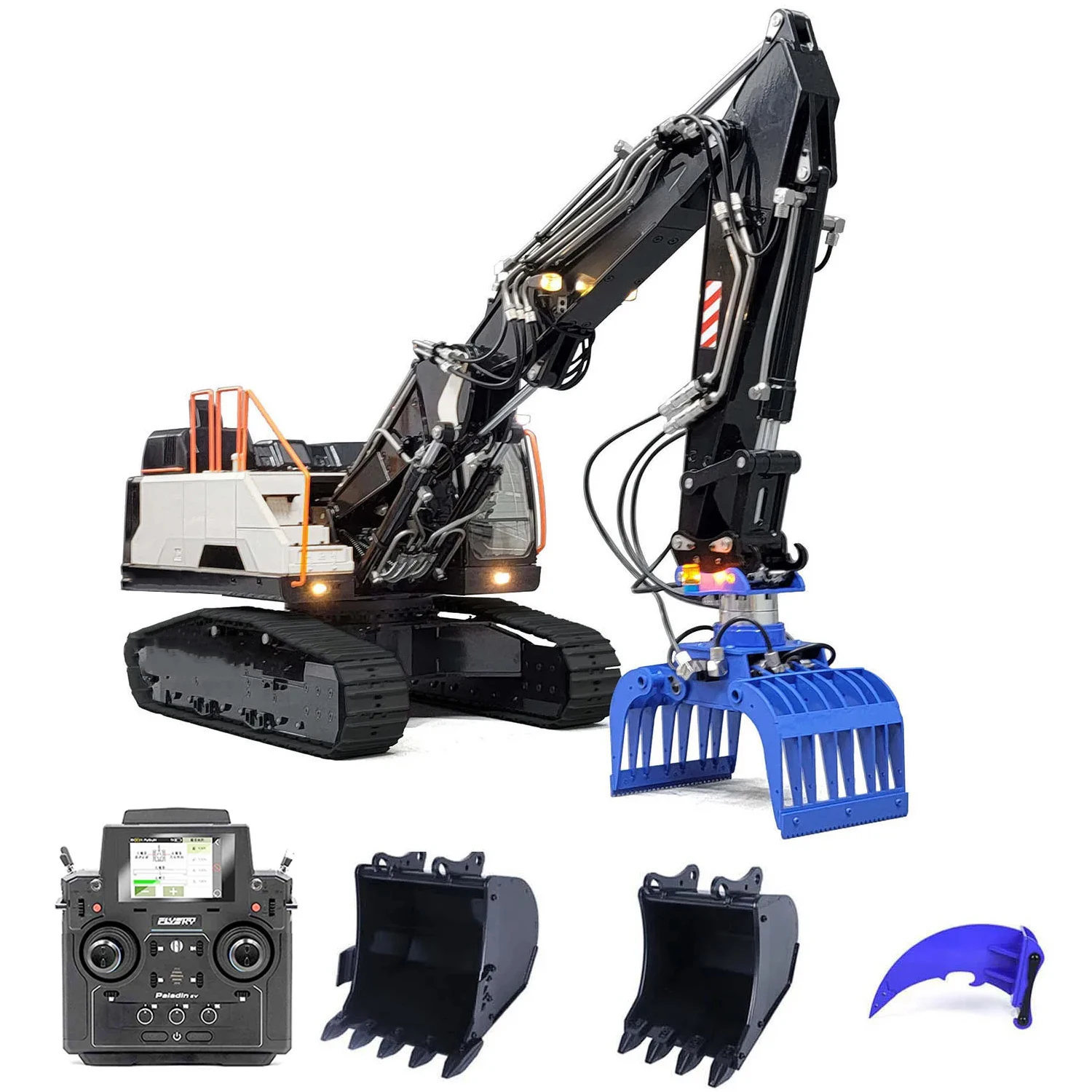Understanding Exactly How Excavator Works and Its Effect On Efficiency
Excavators play an essential function in building and construction and mining procedures, relying upon a complicated interplay of hydraulic and mechanical systems. Their capacity to carry out a variety of tasks rests on both their layout and the innovation integrated within. Comprehending these elements can significantly affect operational effectiveness and efficiency. As advancements proceed to reshape the market, one need to consider exactly how these adjustments will certainly affect future practices and efficiency.
The Fundamentals of Excavator Mechanics

The Duty of Hydraulic Solutions in Excavators
At the heart of excavator operation lies the hydraulic system, which plays a critical duty in powering the equipment's functions and movements. This system makes use of pressurized hydraulic liquid to move energy, allowing various actions such as digging, lifting, and swinging. By using the concepts of hydraulics, excavators can do jobs with amazing accuracy and force, improving total functional efficiency.The hydraulic system includes crucial components, consisting of cylinders, pumps, and shutoffs, which collaborate to regulate the flow and instructions of the liquid. When the driver involves the controls, the hydraulic fluid is routed to details cyndrical tubes, converting the operator's commands into physical movement. This system permits for smooth and receptive activities, which are essential in construction and excavation settings. double e volvo rc excavator. The performance of the hydraulic system straight influences the efficiency and versatility of the excavator, making it an important aspect in modern excavation procedures
Trick Parts of an Excavator
Recognizing the crucial elements of an excavator is vital for understanding exactly how this effective maker operates. An excavator includes a number of substantial components, including the undercarriage, house, boom, arm, and bucket. The undercarriage provides security and flexibility, commonly featuring tracks or wheels to browse numerous terrains. Your house has the engine and hydraulic systems, permitting the operator to regulate movement and power the equipment. The boom expands from the home, allowing vertical reach, while the arm connects to the bucket, helping with digging and lifting operations.Additionally, the cab houses the operator, furnished with controls for specific maneuvering. Each of these components plays a vital role in the excavator's total capability, contributing to its efficiency and efficiency on building sites. Comprehending these parts aids in preserving and optimizing excavator performance, ensuring tasks are completed securely and effectively.
Accessory Flexibility and Its Benefits
Add-on flexibility is an important facet of excavators, enabling drivers to change between different devices tailored for certain jobs. This versatility not only boosts work effectiveness however also adds to cost-effectiveness by decreasing the need for numerous makers. Comprehending the various kinds of add-ons offered can greatly impact the general performance and performance of an excavator on job sites.
Kinds of Attachments
While excavators are largely recognized for their excavating capacities, their real flexibility depends on the vast array of attachments offered. These accessories enhance the excavator's functionality, allowing it to carry out various tasks beyond excavation. Common attachments include containers (for digging and scooping), hydraulic thumbs (for understanding products), and augers (for drilling openings) Grapples are made use of for taking care of and relocating particles, while rippers can break up hard surfaces. Other specialized accessories, such as plates and rakes, make it possible for excavators to adjust to details work demands. This variety not only boosts the machine's energy throughout different fields, consisting of construction, landscape design, and demolition, however additionally allows operators to customize their devices to meet particular task demands efficiently.
Enhanced Job Performance
Optimizing task performance is a key benefit of utilizing different excavator add-ons. Various attachments enable an excavator to execute several tasks without requiring to switch over tools, saving valuable time and labor. Making use of a hydraulic hammer can break concrete while a pail add-on can dig deep into soil, making it possible for a seamless operations. This versatility lowers downtime connected with equipment adjustments and improves performance on-site. In addition, specialized add-ons enhance precision in jobs such as grading or landscaping, bring about better results. The capability to adjust to different job needs not just enhances procedures but additionally lessens the demand for additional equipment, guaranteeing that jobs are completed quickly and you can look here efficiently. In general, attachment adaptability significantly adds to enhanced job efficiency in excavation job.
Cost-Effectiveness and Adaptability
Cost-effectiveness is a substantial benefit of making use of functional excavator attachments. These add-ons enable a single excavator to perform several jobs, lowering the demand for extra equipment and labor - double e volvo rc excavator. By switching over between containers, hammers, and grapples, drivers can take on numerous projects, from excavating to demolition, thus taking full advantage of equipment utilization. This flexibility not only reduces operational costs but additionally reduces downtime connected with changing devices. Furthermore, the ability to personalize excavators with specialized add-ons enhances efficiency, as they can successfully take care of varied jobs according to project demands. To conclude, the combination of cost-effectiveness and versatility in excavator add-ons adds to improved operational performance and source appropriation in building and construction and excavation projects

Advanced Modern Technology in Modern Excavators
Modern excavators are significantly outfitted with advanced innovation that transforms excavation processes. Automation simplifies operations, while improved fuel efficiency decreases functional costs. In addition, smart control systems enhance precision and safety and security, marking a significant development in excavation devices.
Automation in Excavation Processes
As excavation technology advances, automation has arised as an important part in boosting efficiency and accuracy on job websites. Modern excavators are equipped with advanced automated systems that assist in jobs such as grading, excavating, and trenching with marginal operator treatment. These systems make use of sensors, GPS, and artificial intelligence algorithms to assure precise placing and depth control, considerably lowering the margin for error. Additionally, automation permits drivers to concentrate on strategic decision-making rather than manual controls, resulting in improved productivity in general. Such developments not just simplify process however additionally improve safety by decreasing human mistake in complex procedures. As a result, the integration of automation in excavation processes stands for a considerable innovation in construction modern technology, driving the market towards better effectiveness and effectiveness.
Improved Fuel Effectiveness
Developments in technology have actually also led to read the full info here considerable enhancements in gas effectiveness for contemporary excavators. Modern devices are outfitted with sophisticated engines that enhance power result while lowering gas intake. These engines make use of ingenious burning technologies, such as turbocharging and direct fuel shot, to improve efficiency and performance. Additionally, lightweight materials in construction lower general weight, enabling much less energy expenditure throughout procedure. The intro of variable rate controls makes it possible for operators to adjust engine efficiency according to particular jobs, better lessening gas use. As a result, these improvements not only reduced functional costs however likewise contribute to environmental sustainability by reducing emissions. On the whole, enhanced gas performance in excavators is a necessary development that reinforces efficiency and financial stability in the building market.
Smart Control Systems
While operators browse significantly complicated task sites, clever control systems in excavators have become crucial tools for enhancing effectiveness and accuracy. These advanced technologies utilize algorithms and sensors to monitor different specifications such as lots weight, terrain conditions, and functional efficiency. By immediately adjusting hydraulic functions, wise systems maximize maker efficiency, bring about enhanced efficiency and lowered endure elements. In addition, drivers benefit from user-friendly user interfaces that provide real-time responses and diagnostics, permitting informed decision-making. This combination of modern technology not only streamlines procedures but additionally minimizes human error, adding to much safer workplace. As the building industry remains to advance, clever control systems will certainly play an important duty in forming the future of excavator effectiveness and performance.
Enhancing Operational Efficiency With Excavators
Excavators play a necessary role in boosting functional effectiveness throughout various building and excavation tasks. Their versatility permits for numerous jobs, including lifting, excavating, and product handling, which improves operations and decreases the requirement for added equipment. With effective hydraulic systems, excavators can execute heavy-duty jobs with precision, significantly decreasing the moment required to total image source tasks. The assimilation of sophisticated technology, such as general practitioner and automated controls, better optimizes their operation, allowing drivers to attain higher precision and decrease material waste. Furthermore, modern-day excavators are made to consume much less gas and lessen discharges, adding to both price savings and environmental sustainability. By utilizing excavators effectively, construction groups can enhance efficiency, satisfy job target dates, and boost total website management. This multifunctionality and efficiency make excavators crucial devices in the contemporary construction landscape.
The Future of Excavators in Construction and Mining Industries
As the construction and mining markets evolve, the future of excavators is poised for significant makeover driven by technical development and transforming functional needs. Developments in automation and artificial intelligence are reshaping excavator abilities, permitting boosted accuracy and effectiveness in procedures. Autonomous excavators are arising, decreasing the requirement for human intervention and lessening the threat of accidents.Moreover, the integration of telematics and IoT technology makes it possible for real-time surveillance of maker efficiency and anticipating maintenance, optimizing uptime. Eco-friendly layouts, including hybrid and electric designs, are getting grip, aligning with sustainability objectives within the industry.Additionally, the use of innovative materials and lighter layouts enhances gas effectiveness while preserving efficiency criteria. As these patterns development, excavators will play a vital duty in satisfying the boosting needs for productivity and security in construction and mining, eventually changing operational landscapes.
Often Asked Inquiries
How Do Climate Condition Influence Excavator Performance?

Weather problems greatly affect excavator efficiency, as rainfall and mud can hinder traction and security, while severe temperature levels might influence hydraulic systems. Operators should adapt to these variables to assure suitable functionality and safety during operations.
What Precaution Should Operators Follow While Utilizing Excavators?
Precaution for excavator operators consist of wearing suitable individual protective equipment, carrying out pre-operation inspections, guaranteeing appropriate communication with ground employees, preserving a secure distance from overhead dangers, and adhering to established functional procedures to avoid accidents.
Exactly How Commonly Should Excavators Be Preserved for Optimal Efficiency?
Excavators should be preserved on a regular basis to ensure peak performance, usually every 250 operating hours or as defined by the supplier. Routine checks enhance reliability, stop unanticipated malfunctions, and expand the life-span of the tools.
What Is the Ordinary Life-span of an Excavator?
The average lifespan of an excavator usually ranges from 10,000 to 15,000 hours of operation. Aspects affecting durability consist of upkeep methods, operating conditions, and the high quality of the device itself, influencing total efficiency and efficiency.

Can Excavators Run on Uneven Terrain Successfully?
Excavators can run effectively on irregular terrain because of their verbalized layouts and adjustable tracks. These functions allow them to preserve stability and grip, enabling reliable operation in tough settings typically experienced in construction and landscaping tasks. Each of these components plays an important function in the excavator's total functionality, adding to its efficiency and performance on building and construction websites. Taking full advantage of job performance is a main benefit of utilizing numerous excavator attachments. While operators navigate significantly complicated job sites, wise control systems in excavators have emerged as crucial devices for improving efficiency and precision. Excavators play an important function in improving operational efficiency throughout different building and construction and excavation tasks. Advancements in automation and man-made knowledge are improving excavator abilities, permitting for boosted accuracy and performance in procedures.